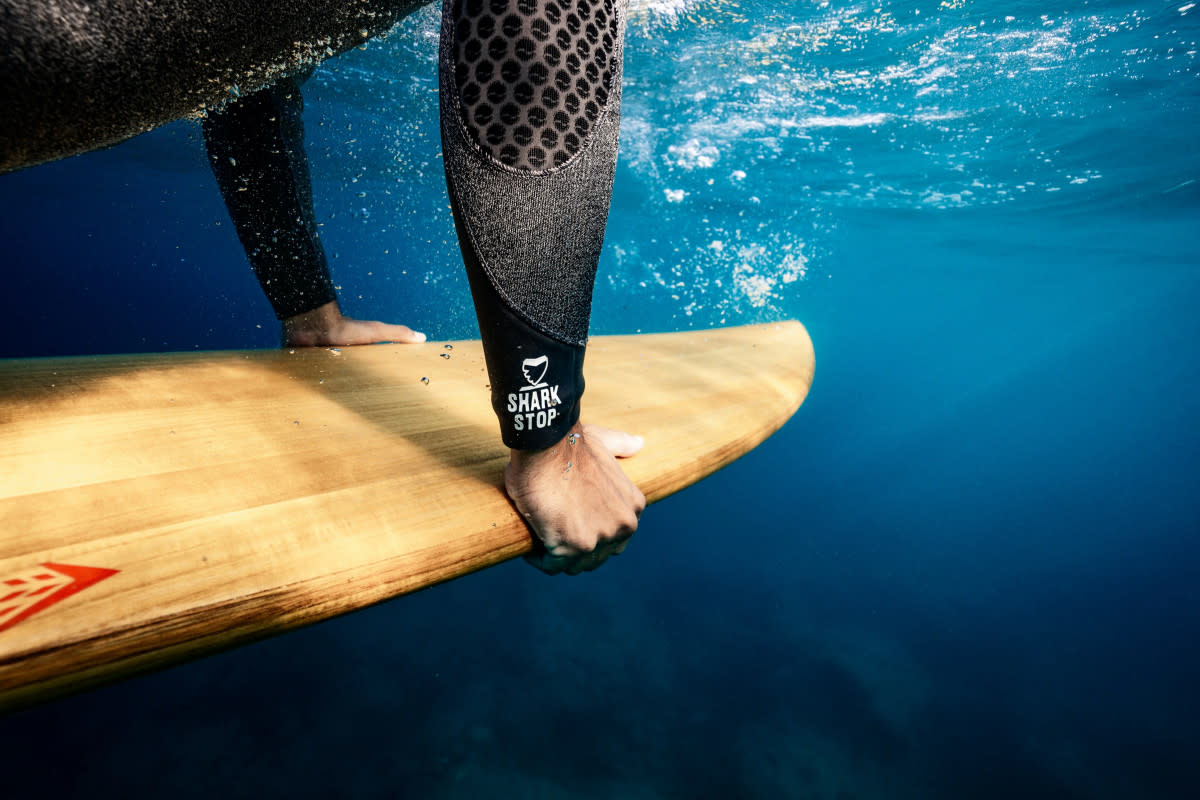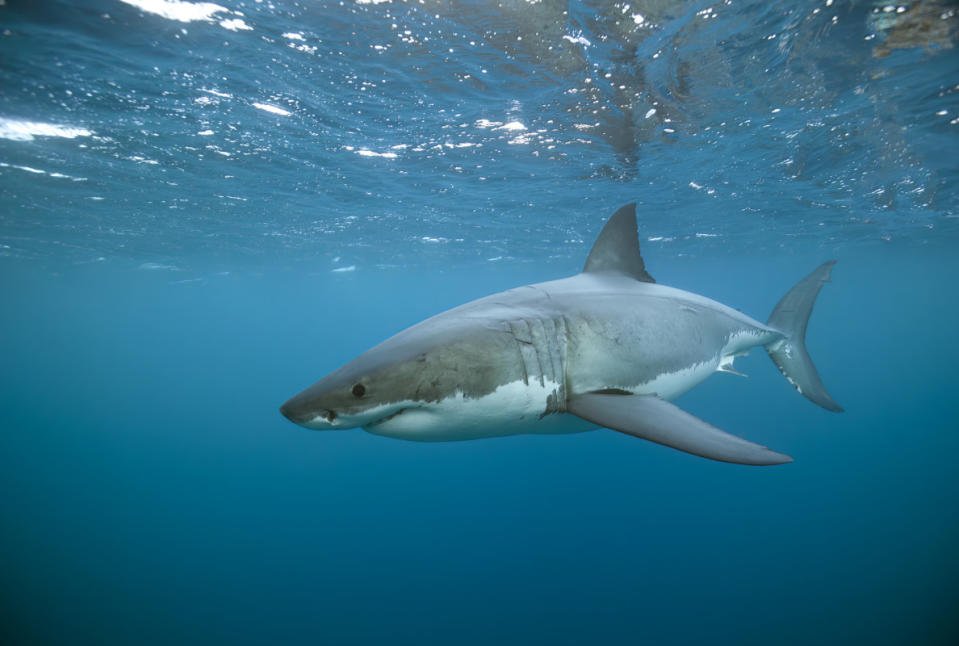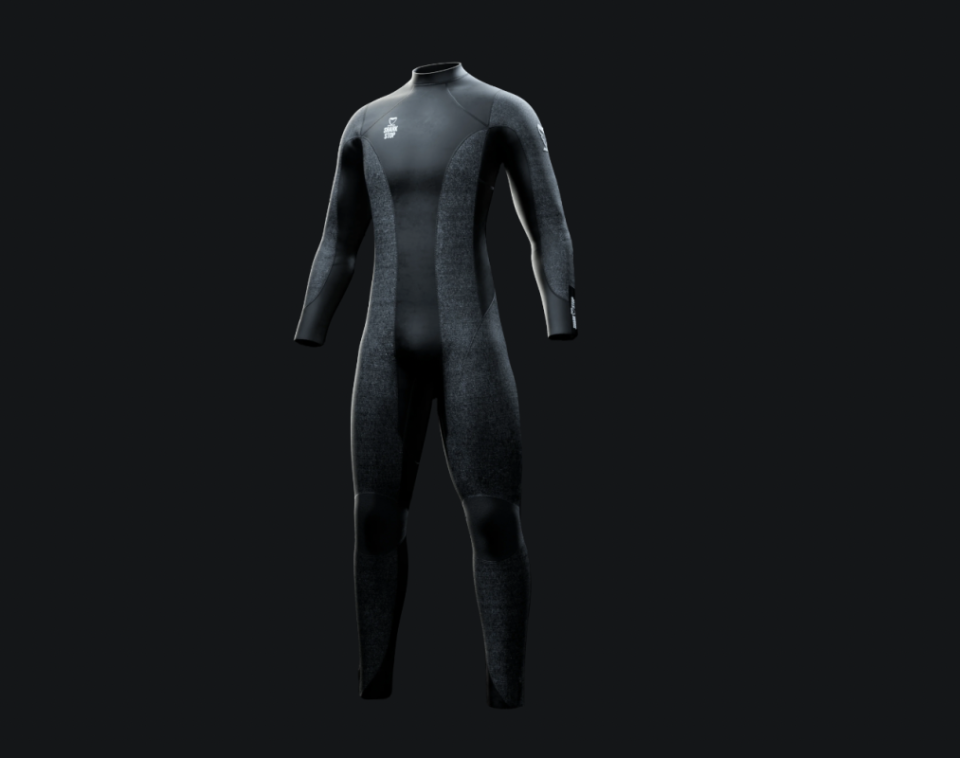Could Shark-Bite-Resistant Wetsuits Save Surfers' Lives?

Shark Stop
The recent great white shark attack on surfer Kai McKenzie has again ignited the debate about what can be done to mitigate shark encounters. Shark Stop, an Australian start-up making shark-bite-resistant wetsuits, might have an answer.
“With the last two shark attacks in New South Wales, the surfers have only survived due to a passerby having some medical training and using a tourniquet to stop blood loss,” Andre Borell, CEO of SharkStop told SURFER. “Our wetsuits are designed to reduce the risk of fatal injuries due to blood loss from femoral artery damage. The material mitigates the puncture effect of the initial bite, but also the tearing that comes when the shark shakes afterwards.”
Tuesday's attack occurred in Port Macquarie, NSW, the same town where 44-year-old Toby Begg was hit in August 2023. Begg also fought the shark and made it to the beach, where an off-duty emergency doctor staunched the bleeding by applying a tourniquet. In Mackenzie’s case, a retired policeman used a dog leash to stop the blood loss, until paramedics arrived.
Related: Great White Shark Attack Nearly Takes Off Rising Australian Surf Star's Leg
Borell believed a Shark Stop wetsuit tech could have significantly reduced the blood loss way before such drastic measures would have been required. The tech was dreamt up by Lennox Head local and surf industry veteran Haydon Burford. In 2017 when chatting to his partner Liz about protective motorcycle jeans made with Kevlar, she asked why wetsuits couldn't offer similar protection from sharks.
After a long period of trial and error trying to find fabric that would work, Burford settled on Ultra-High Molecular Weight Polyethylene (UHMWPE). This can be laminated on neoprene to enhance the wetsuit’s shark bite-resistant properties significantly. The material has also been used in prison wardens’ stab-resistant uniforms and ballistic protection.

Andrew Thirlwell via Getty
With a grant from the NSW Department of Primary Industries (DPI), Hayden hooked up with Associate Professor Charlie Huveneers at Flinders University to test the product in labs and in great white habitats at Neptune Island, South Australia. The material was found to significantly reduce lacerations compared to standard wetsuits. They found the average bite force per tooth of a 6.5 meter (21 ft) great white shark was 410 newtons. It took an average of 900 newtons to penetrate Shark Stop’s bite-resistant wetsuits. New testing is now being done by Flinders University with tiger and bull sharks.
Borell came across the technology as the director of his popular investigative documentary Envoy: Shark Cull. Narrated by Eric Bana, the film outlines the brutal shark culling program deployed by the QLD and NSW governments, which isn't science-led and has been based on methodology introduced in the 1930s.
Looking at various technologies that could find a better solution for humans and sharks, he was impressed enough with Burford’s idea to become an angel investor in Shark Stop. That morphed into a CEO role as the brand set about commercialization in 2021.
As with most start-ups, it hasn't been easy. Capitalization is always an issue, and finding wetsuit manufacturers to deal with their unique fabric was problematic. They have been resolved, to a degree, and he says around 1,000 wetsuits have been sold through their Kickstarter program and e-commerce site.

Shark Stop
“It’s a 50/50 mix of surfers and divers buying the wetsuits at the moment,” Borell said. “Look, we don’t really want to be a wetsuit company. Ideally down the track we will partner with brands who are, and we can offer the tech to a wider section of the public.”
Currently, they have 3mm and 5mm full-length wetsuits for sale for around $1,000. The price point is high, and while Borell expects that to drop as they scale up production, it is a function of the unique material. And while the mix of Yamamoto neoprene and UHMWPE laminate means less flex and slightly more weight, he's confident the wetsuits allow surfers to maneuver, paddle, and surf with comfort and security.
And the trade-off, of course, is massive. If this is a material that can protect both humans and eventually, sharks, it might just be one of the most significant breakthroughs for ocean lovers in generations. Watch this space.
Related: Legendary Pipeline Surfer Tamayo Perry Killed in Shark Attack

